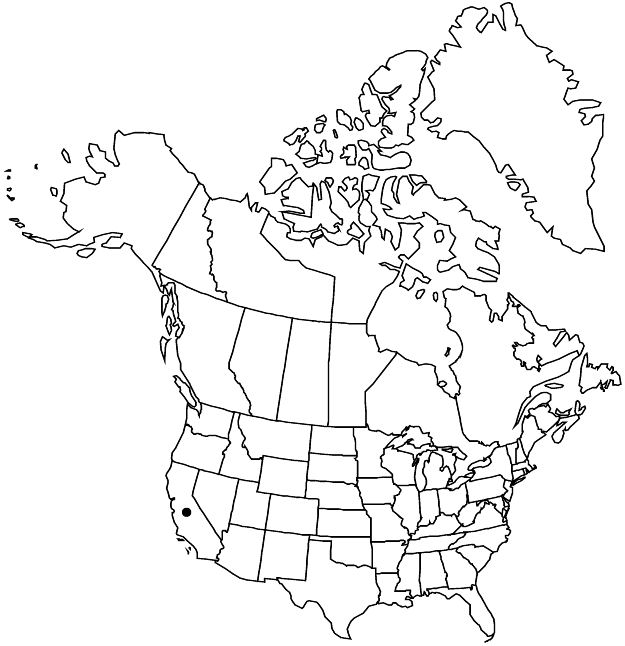Arceuthobium campylopodum subsp. californicum
Phytoneuron 2012-51: 10. 2012.
Plants forming witches brooms. Stems bright-yellow or green, 6–8 (–14) cm; third internode 6–10.5 (–16) × 1–1.5 (–2) mm, dominant shoot 1.5–4 mm diam. at base. Staminate flowers 3.3 mm diam.; petals 3–4. Fruits 4 × 2.5 mm.
Phenology: Flowering Jul–Aug; fruiting Sep–Oct.
Habitat: Coniferous forests with sugar pine or western white pine.
Elevation: 600–2000 m.
Discussion
Meiosis occurs in July, with fruits maturing 13–14 months after pollination.
As the common name implies, subsp. californicum is parasitic primarily on Pinus lambertiana, secondarily on P. monticola. It is found from the Peninsular Ranges of San Diego County through the Sierra Nevada to the Cascade Range of Siskiyou County, as well as some locations in the Klamath Mountains. In some locations it is sympatric with subsp. campylopodum, and rarely both taxa can be found on the same host. It induces large witches' brooms on sugar pine and is considered a serious pathogen of that species.
Selected References
None.
